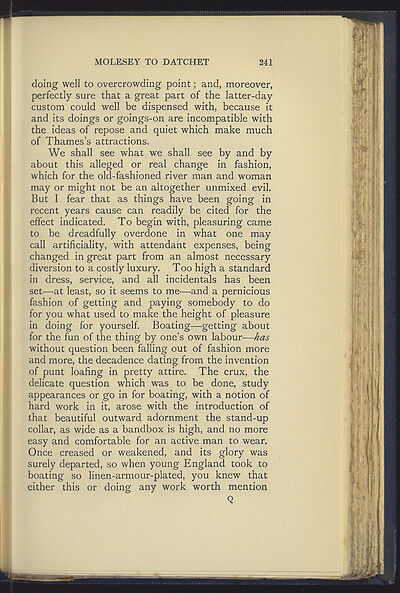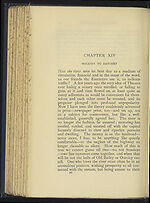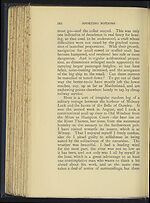Download files
Complete book:
Individual page:
Thumbnail gallery: Grid view | List view

MOLESEY TO DATCHET 241
doing well to overcrowding point; and, moreover,
perfectly sure that a great part of the latter-day
custom could well be dispensed with, because it
and its doings or goings-on are incompatible with
the ideas of repose and quiet which make much
of Thames's attractions.
We shall see what we shall see by and by
about this alleged or real change in fashion,
which for the old-fashioned river man and woman
may or might not be an altogether unmixed evil.
But I fear that as things have been going in
recent years cause can readily be cited for the
effect indicated. To begin with, pleasuring came
to be dreadfully overdone in what one may
call artificiality, with attendant expenses, being
changed in great part from an almost necessary
diversion to a costly luxury. Too high a standard
in dress, service, and all incidentals has been
set—at least, so it seems to me—and a pernicious
fashion of getting and paying somebody to do
for you what used to make the height of pleasure
in doing for yourself. Boating—getting about
for the fun of the thing by one's own labour—has
without question been falling out of fashion more
and more, the decadence dating from the invention
of punt loafing in pretty attire. The crux, the
delicate question which was to be done, study
appearances or go in for boating, with a notion of
hard work in it, arose with the introduction of
that beautiful outward adornment the stand-up
collar, as wide as a bandbox is high, and no more
easy and comfortable for an active man to wear.
Once creased or weakened, and its glory was
surely departed, so when young England took to
boating so linen-armour-plated, you knew that
either this or doing any work worth mention
4
r
doing well to overcrowding point; and, moreover,
perfectly sure that a great part of the latter-day
custom could well be dispensed with, because it
and its doings or goings-on are incompatible with
the ideas of repose and quiet which make much
of Thames's attractions.
We shall see what we shall see by and by
about this alleged or real change in fashion,
which for the old-fashioned river man and woman
may or might not be an altogether unmixed evil.
But I fear that as things have been going in
recent years cause can readily be cited for the
effect indicated. To begin with, pleasuring came
to be dreadfully overdone in what one may
call artificiality, with attendant expenses, being
changed in great part from an almost necessary
diversion to a costly luxury. Too high a standard
in dress, service, and all incidentals has been
set—at least, so it seems to me—and a pernicious
fashion of getting and paying somebody to do
for you what used to make the height of pleasure
in doing for yourself. Boating—getting about
for the fun of the thing by one's own labour—has
without question been falling out of fashion more
and more, the decadence dating from the invention
of punt loafing in pretty attire. The crux, the
delicate question which was to be done, study
appearances or go in for boating, with a notion of
hard work in it, arose with the introduction of
that beautiful outward adornment the stand-up
collar, as wide as a bandbox is high, and no more
easy and comfortable for an active man to wear.
Once creased or weakened, and its glory was
surely departed, so when young England took to
boating so linen-armour-plated, you knew that
either this or doing any work worth mention
4
r
Set display mode to:
![]() Universal Viewer |
Universal Viewer | ![]() Mirador |
Large image | Transcription
Mirador |
Large image | Transcription
Images and transcriptions on this page, including medium image downloads, may be used under the Creative Commons Attribution 4.0 International Licence unless otherwise stated. ![]()
| Sports publications > Sporting notions of present days and past > (253) |
|---|
| Permanent URL | https://digital.nls.uk/231785991 |
|---|
| Description | More than 230 sports publications from the National Library of Scotland's collections. Featured sports include football, rugby, golf, shinty, athletics, bowls, cricket and hockey. Among the material from the late 19th and early 20th centuries are match programmes, club histories, and handbooks. From the late 20th century are promotional materials to encourage greater diversity in sport. Most items cover sports activities in Scotland. There are also publications relating to the Olympics and international matches. |
|---|---|
| Additional NLS resources: |
|

